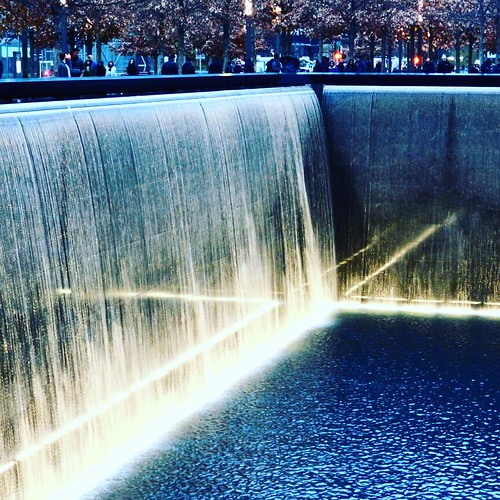
Pages on this Blog
▼
Thursday, September 26, 2019
"Oh, just one more thing," said Inspector Colombo....
The people in this photo celebrate birthdays today. Well, I'm not sure if George Gershwin is actually celebrating, but I hope he is. Happy birthday to him, Jim Caviezel, Olivia Newton John, and that fourth guy.


Something for Thursday
Tomorrow The Wife and I set out for our annual trip to the Finger Lakes region, for adventure and food and books and crafts and all sorts of niftiness! In that vein, here's some adventure music by James Horner. I need to watch this movie again someday....
Tuesday, September 24, 2019
Tone Poem Tuesday
It's always been interesting to me that so few great and enduring works of classical music have been inspired by the Arthurian legends (or "the Matter of Britain"). There's some crossover in the operas of Richard Wagner, mostly in his use of the Grail in Lohengrin and Parsifal, but that's really about it, outside of the work of today's composer, French Romantic Ernest Chausson. I suppose this can be possibly explained by the fact that nationalism in art also arose during the Romantic period, so when composers were most inspired by legend and myth they also tended to be inspired by their own nation's legends and myths. This, coupled with the fact that very few of the "great" composers of the Romantic era came from Britain, may explain the paucity of Arthurian operas and symphonies and tone poems.
Except for this Frenchman, Ernest Chaussons, who wrote a tone poem and an opera directly inspired by the Arthurian legends. Chausson was a "bridge" figure, connecting the earlier era of French romanticism with the emergent forms of Impressionism that followed the Romantics. Chausson was primarily influenced by Wagner and by Cesar Franck, and even though his output was small, his music is highly individual and deeply felt. In this way--and in his untimely death--Chausson almost seems like a French counterpart to Alexander Borodin.
The tone poem Viviane is inspired by the love affair between Merlin the wizard and the maiden Viviane, which ends tragically in the eternal imprisonment of Merlin inside a cave of crystal. The work is lush and mostly introspective, but with passages of rapturous passion before concluding on a sad note. One can definitely hear in this work the drama of a Wagner but also the atmospheric introspection of the impressionists to come.
Here is Viviane by Ernest Chausson.
Except for this Frenchman, Ernest Chaussons, who wrote a tone poem and an opera directly inspired by the Arthurian legends. Chausson was a "bridge" figure, connecting the earlier era of French romanticism with the emergent forms of Impressionism that followed the Romantics. Chausson was primarily influenced by Wagner and by Cesar Franck, and even though his output was small, his music is highly individual and deeply felt. In this way--and in his untimely death--Chausson almost seems like a French counterpart to Alexander Borodin.
The tone poem Viviane is inspired by the love affair between Merlin the wizard and the maiden Viviane, which ends tragically in the eternal imprisonment of Merlin inside a cave of crystal. The work is lush and mostly introspective, but with passages of rapturous passion before concluding on a sad note. One can definitely hear in this work the drama of a Wagner but also the atmospheric introspection of the impressionists to come.
Here is Viviane by Ernest Chausson.
Friday, September 20, 2019
Something for Thursday (Friday edition)
So, they're talking about a remake of The Princess Bride. This is, of course, a bullshit idea that needs to be lured into a quiet and dark alley someplace and strangled until dead.
But that gives me an excuse to post (a day late, sorry) a bit of music from The Princess Bride! Enjoy!
But that gives me an excuse to post (a day late, sorry) a bit of music from The Princess Bride! Enjoy!
Tuesday, September 17, 2019
Tone Poem Tuesday
The operas of Giacchino Rossini aren't performed very much today, but they were once all the rage, and the overtures to those operas have remained mainstays of orchestral music even while the operas themselves have lapsed into some neglect. Rossini's overtures sparkle with energy, adventure, and lyrical wit, and a few have managed through use in other areas of popular culture managed to become even more well-known now than they were in the composer's own time. Think of William Tell's final section, reused later as the theme for The Lone Ranger, or of the amazing use a Looney Tunes cartoon made of The Barber of Seville.
Today we have a different overture: L'italiana in Algeri, or The Italian Girl in Algiers. The overture starts off quietly before a surprising smash erupts from the orchestra, and then as the overture progresses the tunes and rhythms become more and more dancelike as the overture propels toward its close. As always, the overture is full of Rossini's sparkle and delight.
Enjoy!
Today we have a different overture: L'italiana in Algeri, or The Italian Girl in Algiers. The overture starts off quietly before a surprising smash erupts from the orchestra, and then as the overture progresses the tunes and rhythms become more and more dancelike as the overture propels toward its close. As always, the overture is full of Rossini's sparkle and delight.
Enjoy!
Thursday, September 12, 2019
Something for Thursday (Happy Birthday Hans Zimmer edition)
Today is the birthday of film composer Hans Zimmer! Zimmer tends to be a rather controversial figure in movie music fandom circles (mainly for the way his style of sound has been influential to the point of making a lot of recent film music rather homogeneous), and he's written a lot of stuff that leaves me cold. But he has also written a lot of frankly wonderful music that deserves to be celebrated. Here are a few selections of his work that I enjoy!
Wednesday, September 11, 2019
Eighteen
Eighteen years. I wonder what we have learned, if anything; how we've grown, if at all; if we've changed in the ways we needed to change.



I wrote this story not long after the events of 9-11-01. It is not the story I would write today. How could it be? I was on the cusp of turning thirty, and at that point the scope of an attack of that magnitude was nearly impossible to process.
Finally, music. I was unable to listen to any music at all for several days after the attacks, until I finally put on this recording of Elegy, a wind ensemble composition by Mark Camphouse. It is one of the most haunting, meditative, and ultimately affirming works of music I know. I offer it not quite in remembrance or observance of 9/11/01, but rather as a meditation on the sadness of that day and as a balm for its passage.



I wrote this story not long after the events of 9-11-01. It is not the story I would write today. How could it be? I was on the cusp of turning thirty, and at that point the scope of an attack of that magnitude was nearly impossible to process.
The City of Dead Works
There is never any rest for me, the Ferryman of the Dead.
I pole my barge across the black waters and up to the pier. So many wait this time, many more than usual. I wonder what has happened, what event has sent me this many. "Come aboard," I say. "I will take your coin for passage." One by one they file past me, each handing to me the coin that they never knew they had. It is the coin which determines where they shall be taken to rest, its metal shaped and determined by life. The coins of these dead are gold, every one of them purest gold. Six thousand come aboard my barge, and each has passage for the farthest and greatest of destinations. In that moment I know that something truly dark has happened; the gold coins are always forged in moments of darkness. I am the Ferryman. I can give them no answers to what lies behind their haunted, questioning eyes. I can only take them on this, the last of all journeys.
When they are all aboard I take up the pole and push away from the pier. The barge always feels the same, no matter how many stand upon its decks. Whether six or six thousand, it is all the same to me. I guide us out onto the River Styx. Some of the people look worried, but there is no need for fear. This river can do them no harm. They are already dead.
This is to be a long journey, I know – it always is, to this destination. As I guide the barge through the black waters, I look on the faces of those who have come to me. As different as these people all look, they all have the same expressions of shock, disbelief, and withering sadness. Here is a man of business, talking into a cell phone. He is trying to call someone, anyone, who will tell him that it’s all a dream, that it didn’t happen, that he didn’t die in a blast of fire, smoke, glass and steel. There is a mother who is explaining to her daughter that they won’t be going to Disneyland after all. And there, a group of firemen stand together, realizing that soon they will meet all their brothers-in-arms who have gone into the infernos before them. So many now – colleagues once in business and now colleagues in death, people who have never before met but now have the gravest thing in common. As the current takes hold, I look back at the pier. There are more gathering there. There are always more. They will wait. Time does not exist for the dead.
"Please," a young man says as he turns to me, "I have to go home to my daughters."
"You are going home now," I reply. "To the home where all eventually return." Two black rocks slide past on either side, the rocks that mark the passage of the circling Styx.
"This can’t be," a woman cries out. "My mother needs me."
"She will be with you soon enough."
"When?" Her voice pleads, and yet there is no solace that is mine to give.
"I cannot say," I reply. "The Ferryman has no hand in Fate."
The tears come then, tears from the six thousand that run over the gunwales and into the river which has been fed by tears for centuries. All tears are born in the River Styx.
"Where will you take us?" someone asks.
"To the place you are promised," I answer. I recall the words of a poet: Will there be beds for all who seek? Yea, beds for all who come.
One our left we approach the Hills of the Damned, an endless stretch of shattered lands which reach away into the blackness. The waters echo with the cries of all those who have been taken to the Hills for the agony they have brought on the living. I consider the bag of six thousand gold coins, and I realize that I will have to journey to the Hills this day. There will be a person, perhaps more, who will pay me with a coin of black tin; but not on this journey. As the hills recede behind us, the unending cries of the damned become fainter and fainter until they are drowned out by the lapping of the waters upon the sides of the boat and the marker stones that we pass. The six thousand fall silent, each realizing that it is not a dream. I would offer solace, but as ever I cannot. I am the Ferryman.
We come around a particularly dark bend, and before us lies a very wide expanse of water, as if the Styx has become an ocean – which in some sense it probably has. And beyond that expanse are the thousands of twinkling lights that I have come to know so well. One man, a fireman, sees them too. "What is that?" he asks.
"It is the City of Dead Works," I reply. The lights of the city glow on the horizon, and every one of the six thousand turns toward them as the Styx impels us onward. As we come ever closer to the city, the glittering lights reflect off the black water.
"I don’t understand," someone else says. "The City of Dead Works?"
"Aye," I reply. "Behold!"
From behind us, golden light: the Sun of the Dead is rising as it always does when the dead come near the City. Above us the firmament is turning purple, then blue; soon the light of the Sun will illuminate the City of Dead Works. As the sky lightens, the true scope of that city becomes plain: it stretches away into the land, farther than any eye could see. Not even the highest-soaring raven, cavorting in the breezes and zephyrs of the dead, could take it all in. It is bigger by far than any one city ever built by the hand of men, because it encompasses some part of all of them. Perhaps it is bigger than all of the cities ever built. Now the sun’s first rays come up behind us, and the first buildings can be seen down by the water.
"That one looks Egyptian," a woman says.
"The Great Library of Alexandria," I tell her. "Once the greatest repository of learning the world had ever seen, now only a memory to the living and a reality only to the dead."
A man points to a building high upon a rock. I nod.
"The Temple of Solomon," I say.
"There are ships in the harbor," says another. Thus for him I name the ships: Arizona, Indianapolis, Lusitania, Bismarck, Wilhelm Gustloff, Cap Arcona. And many, many others. I scan over the impossibly vast city and spot Dresden, as it was; and beside it the cities of Hiroshima and Nagasaki. And how many smaller villages, tucked into the hills beyond the City? None can say. The Sun of the Dead shines upon those hills now, and the great stone statues in the likeness of Siddhartha Gautama.
"I don’t understand," a young man says. "Why this City? Why here?"
I only shake my head as we continue to float by the City. I do not point out the fairly small, nondescript office building that sits near the water. It is not a particularly remarkable building; nor was it, really, until the fuse was lit. The six thousand almost don’t recognize it.
Almost.
Not one word is uttered as we slide past the Alfred Murrah Federal Building. Then we turn away from the City of Dead Works, and head again down the waters of the Styx toward distant hills and the place where these people will join their brethren.
"Who lives in that city?" It is a priest in a fireman’s coat.
"No one lives there," I tell him. "The City of Dead Works is not for people. It is for the buildings and the ships. It is for the books and the music, the sculptures and the paintings which are gone forever. It is for everything destroyed by craven people in the name of foolish wars, for everything judged forfeit in the face of transitory desires."
The Styx takes us into the Golden Hills. Soon we will be there, and the six thousand will go where they belong. And then the Styx will complete its circle, taking me back to the pier where more dead await.
"We will be there soon," I say. "Soon we will be at the Elysian Fields, where all heroes go – for that is what you all are. It is what you have bought with your lives, with the shaping of your coins into gold." No one replies. We near the last bend now, and before us lie the Elysian Fields, where peace reigns and where heroes dwell; where all is light and voices are always raised in song. The Sun of the Dead shines warmly on Elysium.
But they do not see it. They, the six thousand, all gaze back behind us upon the City of Dead Works. It will soon be behind us forever as we round the last bend of the River Styx into Elysium. I know they all need one last look upon that City, and I do not grudge them that. For myself, I do not look back; the eyes of the Ferryman are ever forward. But I know. I know that the City of Dead Works is different now. I know that it has changed. I know that the people who come with me now to Elysium, the dead around me, look back on the two soaring towers of steel that now rise above the City where there had been no towers before.
I know these things.
I am the Ferryman of the Dead.
Finally, music. I was unable to listen to any music at all for several days after the attacks, until I finally put on this recording of Elegy, a wind ensemble composition by Mark Camphouse. It is one of the most haunting, meditative, and ultimately affirming works of music I know. I offer it not quite in remembrance or observance of 9/11/01, but rather as a meditation on the sadness of that day and as a balm for its passage.
Tuesday, September 10, 2019
Tone Poem Tuesday
Time for some film music! One thing that a lot of movie music fans discover is how often it turns out that they love a particular filmscore while disliking the film for which it was written. This is an example of mine. The 80s urban fantasy flick Highlander is a cult fave for many, but I have never much liked it at all. Not even the inherent coolness of Sean Connery or Clancy Brown are sufficient to make the movie interesting to me (if you haven't seen it, it's about immortal beings who are fated to battle one another through the ages until only one remains). The movie is shot with flare and the action sequences are cool, but the script is...well, it's mostly ponderous and dull.
Not so, however, is Michael Kamen's score, which soars and swoops and gives the entire film a gravitas that it honestly doesn't earn by virtue of its story. This is a suite that someone edited together from Kamen's work for the film, and it highlights the best parts of Kamen's work. Enjoy!
Not so, however, is Michael Kamen's score, which soars and swoops and gives the entire film a gravitas that it honestly doesn't earn by virtue of its story. This is a suite that someone edited together from Kamen's work for the film, and it highlights the best parts of Kamen's work. Enjoy!
Monday, September 09, 2019
Recent Adventures
After a hectic (and sick!) couple of weeks at Casa Jaquandor, things are starting to finally settle out a bit! Work at The Store has been going through a crazy patch, but that's starting to die down at last, and the cold that walloped me week before last is almost entirely a memory now, so maybe I can get a bit focused again. And just in time, too, as my favorite time of year is fast approaching! We're talking Autumn, the time of big pots of chili and cool crispness in the air and apples and our annual trip to Ithaca and, of course, overalls!
Anyway, here's some photographic goodness from the last ten days or so.











Anyway, here's some photographic goodness from the last ten days or so.











Thursday, September 05, 2019
Something for Thursday
A wonderfully ethereal rendition of one of my favorite classic romance songs, "A Nightingale Sang in Berkeley Square".
Wednesday, September 04, 2019
Tapping the Microphone

Oh look, somebody left a blog here.
Yes, folks, it's been the usual set of reasons for low posting here: focus on getting edits done on a book, plus some very busy days at work owing to an important event we're hosting next week (I worked 46.5 hours last week, with one day going 13 hours), plus an irritating late-summer cold that started off mild but then mustered itself into Serious Pain In The Ass territory for the entire week. And oh, the week I was sick was also the week I worked 46.5 hours, so even though I have since had a three-day-weekend and seen the workload drop off to more manageable levels, in a lot of ways I'm still recovering.
The digging out continues...but here's a small list of things I've published recently over on The Geekiverse over the last few months:
Twenty Years of The Phantom Menace
The Real Ranking of the STAR WARS movies
The Best Fictional Clubs, Bars, and Restaurants
Apollo at 50
Farewell, MAD Magazine
Reviews: On a Sunbeam, Tillie Walden
The Secret History of Wonder Woman, Jill Lepore
Runaway Max: A STRANGER THINGS Novel, Brenna Yovanoff
I really do hope to return to regular posting here, folks. The last few weeks did not cooperate....
